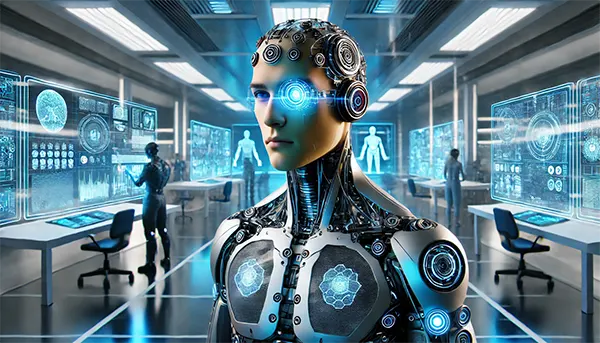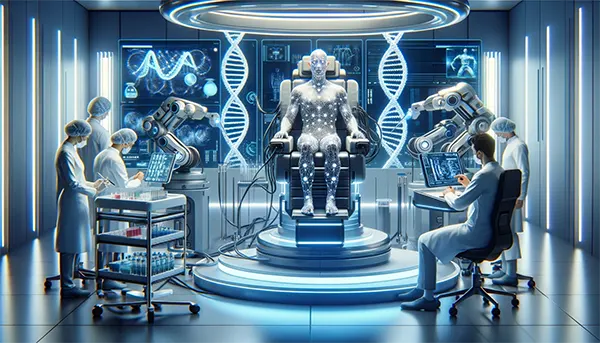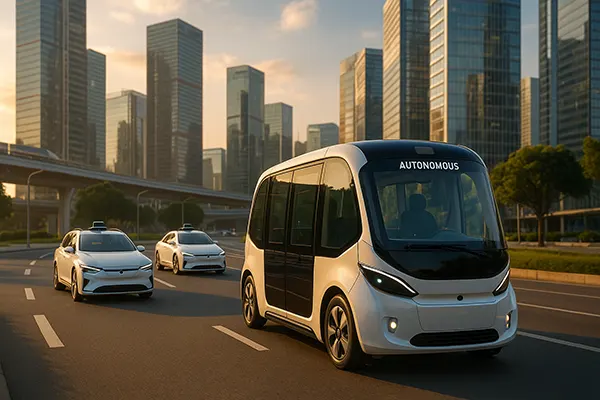
The Evolution of Biohacking: Will the Human of the Future Become a Cyborg?
Biohacking has evolved from a niche pursuit into a revolutionary field that blurs the line between human and machine. From advanced implants and neural interfaces to CRISPR-based genetic modifications, the concept of enhancing human capabilities has moved beyond science fiction. But how far can this technology go? Could the human of the future become a cyborg, seamlessly integrated with artificial enhancements? In this article, we explore the latest biohacking trends and their potential to reshape humanity.
The Rise of Implants and Cybernetic Enhancements
Technological implants have shifted from medical necessities to voluntary upgrades. Biohackers and researchers are pushing boundaries by integrating artificial components into the human body to improve cognitive functions, sensory perception, and physical abilities. Neural implants, for example, have enabled paralysed individuals to regain motor functions, while experimental retinal chips offer enhanced vision.
One of the most prominent developments in cybernetic enhancements is Elon Musk’s Neuralink, which aims to create a seamless connection between the human brain and computers. Such technology has the potential to revolutionise communication, learning, and even intelligence augmentation. Other projects focus on bio-sensors that monitor health in real time, predicting diseases before symptoms arise.
However, the ethical implications of cybernetic enhancements remain controversial. While they promise to improve lives, they also introduce concerns about security, social inequality, and the potential for government or corporate misuse of personal data.
The Role of AI and Robotics in Human Augmentation
Artificial intelligence is increasingly becoming an integral part of human augmentation. AI-powered prosthetics now provide amputees with near-natural movement and even sensory feedback, closing the gap between biology and technology. Robotics, too, is advancing rapidly, offering exoskeletons that restore mobility to disabled individuals or enhance the strength of healthy users.
Companies like Boston Dynamics and Cyberdyne have developed robotic exosuits that enhance mobility and reduce strain on workers in physically demanding jobs. Meanwhile, AI-driven brain implants are showing promise in enhancing memory retention, opening doors to potential applications in education and research.
The question remains whether AI-integrated augmentation will remain purely beneficial or whether it will lead to a society divided between those with access to enhancements and those without. The ethical debate surrounding transhumanism continues to grow as the technology advances.
Genetic Engineering and CRISPR Technologies
While cybernetic enhancements focus on integrating technology into the human body, genetic engineering aims to optimise human biology itself. CRISPR gene-editing has revolutionised the field, offering the potential to eliminate hereditary diseases, enhance physical traits, and even extend lifespan.
Scientists have already demonstrated the ability to edit human embryos to remove genetic disorders, sparking heated debates about the ethics of designer babies. While some advocate for the elimination of genetic illnesses, others fear the creation of a genetically modified elite.
Another key area of biohacking is epigenetics, which focuses on altering gene expression through environmental and lifestyle changes. Advances in this field could lead to personalised medicine, where treatments are tailored based on an individual’s genetic makeup, maximising health benefits.
The Potential for Human Longevity and Performance Enhancement
Beyond eliminating diseases, biohackers are exploring methods to enhance physical and cognitive performance. From nootropic drugs that boost brain function to regenerative therapies that slow ageing, the human lifespan may soon be extended beyond its natural limits.
Anti-ageing research has gained significant traction, with biotech firms developing experimental treatments to reverse cellular ageing. Some studies suggest that reprogramming cells could lead to regenerative medicine breakthroughs, allowing humans to repair damaged tissues and even regrow lost body parts.
While such advancements offer promising possibilities, they also present moral dilemmas. Should life extension be available to all, or will it become a luxury for the wealthy? And what would be the societal impact of significantly longer lifespans?

The Future of Biohacking: Ethical and Societal Challenges
As biohacking technologies continue to advance, society faces critical questions about their impact. Who should regulate genetic modifications? Should cybernetic enhancements be mandatory for certain professions? Will artificial intelligence widen the gap between economic classes?
Privacy concerns are another major issue. Implantable devices can track and store vast amounts of personal data, raising fears of surveillance and data breaches. Governments and corporations may gain unprecedented access to individuals’ health records, thoughts, and behaviours.
Additionally, the growing biohacking movement has sparked a push for open-source biology, where individuals experiment with enhancements outside of traditional medical frameworks. While this decentralised approach encourages innovation, it also raises safety concerns, as unregulated experimentation could lead to unforeseen consequences.
Can We Control the Evolution of Humanity?
With the rapid development of biohacking, the question arises: how much of human evolution should be left to nature, and how much should be guided by technology? While biohacking holds immense potential to improve lives, it also introduces ethical dilemmas that cannot be ignored.
Regulations will play a crucial role in shaping the future of human augmentation. Governments and scientific bodies must establish guidelines to ensure that enhancements remain safe, accessible, and ethically sound. Without proper oversight, the risks of exploitation and inequality may outweigh the benefits.
Ultimately, biohacking represents the next frontier of human advancement. Whether it leads to a utopian future where disease and disabilities are eradicated, or a dystopian reality of genetic elitism and cybernetic dependency, depends on how we navigate the challenges ahead.




